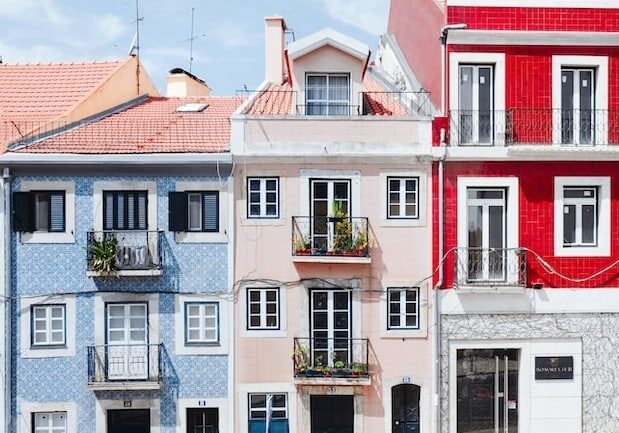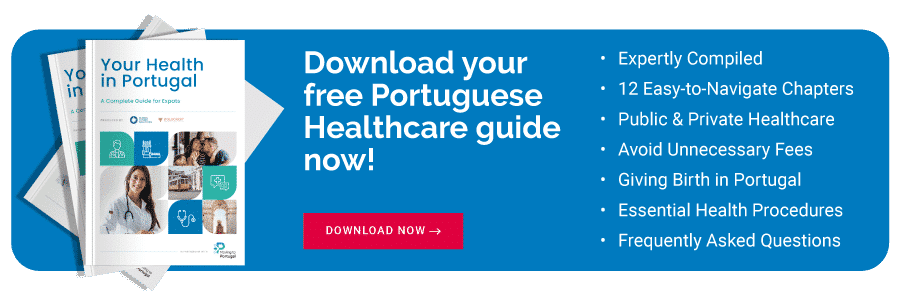Portugal has emerged as a preferred destination for Americans seeking a new home in Europe. This European country beckons with its pleasant, year-round climate, attractive low cost of living, laid-back lifestyle, beautiful landscapes, and welcoming and diverse culture.
Are you thinking of immigrating to Portugal from the US? As a US national, you can enter Portugal without a visa and stay there for 90 days. But if you want to stay in the country for more than 90 days, you must apply for a residency permit. Fortunately, many Portuguese visas are available for US citizens relocating to Portugal.
Then, there’s a few relevant information you should know as a US citizen moving to Portugal. Keep reading this comprehensive guide as we delve into what living in Portugal as an American is like.
In this article, we will cover the following:
- Why are people moving to Portugal from the USA
- What is American expat life like in Portugal
- The cost of living in Portugal
- The top Portuguese cities to live in
- Easy residency visa pathways
- Challenges for American ex-pats in Portugal
Why is everyone moving to Portugal?

The US Retirement Trend report places Portugal in second place globally for USA retirees. This report found that it’s a combination of factors that sets Portugal apart, such as:
High quality of life: The country is known for its relaxed pace, friendly locals, and a strong sense of community, making it an appealing destination for those seeking a better work-life balance.
Access to public healthcare: Robust public healthcare system, which is known for its quality and affordability. Residents can receive necessary medical care without the financial burden often associated with healthcare in other countries.
Quality education system: A strong education system with reputable universities and schools. International schools in the country are also excellent, attracting many American families looking to move to Europe.
Rich history and culture: Portugal is steeped in rich history and culture. From the cobblestone streets of Lisbon to the wine regions of the Douro Valley, there is always something to explore and experience.
Safety: Portugal is one of the safest countries to live in, ranking sixth in the 2022 Global Peace Index. Its low crime rates and stable political environment make it an ideal place for individuals and families seeking a secure living environment.
Visa-free travel to other European countries: Living in Portugal offers the advantage of visa-free travel to other countries within the Schengen Area. This makes it convenient for residents to explore and enjoy Europe’s diverse cultures and attractions.
Excellent climate: The country is renowned for its pleasant climate, with mild winters and long, sunny summers.
Booming digital nomad scene: People worldwide can now work from anywhere, and many are choosing to live in Portugal to take advantage of the country’s special visas for digital nomads. This European country also has a thriving tech and startup scene mirroring San Francisco’s. In fact, Lisbon’s Ponte 25 de Abril Bridge is based partly on two San Francisco Bay Area bridges, a nice glimpse of home for Californians.
Can Americans live in Portugal permanently?
Yes, Americans can live in Portugal. A US citizen can enter Portugal without a visa, and stay in the country for 90 days. However, if they plan to stay for more than 90 days, they must secure a Portuguese residency permit. This temporary residence permit can be obtained after they enter Portugal through several ways, such as finding work in the country for a Portuguese employer, enrolling in a long-term course of studies, marrying a Portuguese citizen, or investing in Portugal’s economy.
After five consecutive years of temporary residency, it’s possible for a US citizen to obtain permanent residency in Portugal and even Portuguese citizenship.
How to Move to Portugal From the USA
You can live and work in Portugal freely if you’re an EU citizen. However, if you’re a non EU citizen (this includes British citizens and US citizens), acquiring a temporary residence permit is a prerequisite. This temporary permit is initially valid for one year and can subsequently be extended for up to five years. Following five years of temporary residency, you become eligible to transition to a permanent residence permit.
When relocating to Portugal as a US citizen, we recommend you focus on the following:
- Applying for the correct visa. With a valid passport, you can apply for a Portuguese visa that suits your lifestyle and needs.
- Finding accommodation. You can find every type of accommodation in Portugal’s vibrant cities, from a one-bedroom apartment to family homes with central heating.
- Researching transportation for your goods. Portugal offers a number of service providers that can make your Portuguese immigration journey seamless

Portugal Visa Types for Americans
According to Portuguese law, if you relocate to Portugal from outside the European Union (EU), you’ll need a temporary residence visa to establish residence there. Various Portuguese visa options are available for individuals moving to Portugal from the USA.
Here’s a breakdown of the best visa types for Americans moving to Portugal.
Portugal Golden Visa Program
The Portugal Golden Visa, or the Residence Permit Program, is a five-year residency-by-investment scheme open to non-EU nationals. It is part of the Portuguese government’s move to welcome foreign investors into the country. The Golden Visa allows investors and their direct family members to live and work in Portugal. After five years of the program, they can apply for citizenship and permanent residency.
Introduced in 2012, the Golden Visa was popular among real estate investors. However, buying property in Portugal is no longer an investment route for the program-
The eligible Portugal Golden Visa investments are the following:
- Fund Subscription: Contribute to a qualified investment fund worth at least €500,000
- Investment or donation in the arts or reconstruction of national heritage with a donation of at least €250,000
- Scientific Research: Science or Technology research contribution of at least €500,000
- Creation of ten jobs: Creation and maintenance of ten jobs during the required period
- Share capital and job creation: Incorporation of a company or reinforcement of a company’s share capital, in either case with an investment of €500,000, combined with the creation of five or maintaining ten jobs (5 of them permanent)
For your Golden Visa application, you must open a Portuguese bank account and obtain an NIF (Portuguese tax number).
Portugal’s D7 Visa
The D7 Visa (Passive Income Visa or Retirement Visa) is designed for individuals who want to move to Portugal and secure Portuguese residency, provided they have sufficient funds to sustain themselves once in the country.
This residence visa option is ideal for retirees and entrepreneurs who wish to move to Portugal without making a significant economic investment in the country.
Some of the benefits of the D7 Visa include:
- No active business involvement (unlike some other visa types, such as the D2 Entrepreneur Visa, the D7 Visa does not require individuals to establish or manage a business in Portugal)
- Fast visa process
- The entire family is eligible
- Visa-free movement in the Schengen Area
- Right to live and work in Portugal
The temporary D7 Visa will allow you and your direct family members to enter Portuguese territory. Once in the country, you’ll be able to request a two-year-valid Portuguese residence permit. After this period, the permit will need to be renewed for three years.
After five years of living in Portugal as an American, you can apply for a permanent residency permit and citizenship provided that you meet all the requirements under Portuguese nationality law.
To apply for this residency visa, you need to:
- Be a non-EU national
- Have a clean criminal record
- Earn a passive income of at least €820.00 per month (your income can come from pensions, transferable equity, real estate, intellectual property, or financial equity)
- Show proof of a place to live in Portugal
Want to know if you’re qualified for the D7 Visa? Take our free D7 eligibility test to find out.
Portugal’s D2 Visa

Some of the key advantages of the D2 Visa are:
- D2 Visa holders can start a new business in Portugal, invest in existing businesses, or engage in entrepreneurial activities in the country.
- Family reunification
- Visa-free travel in the Schengen Area
- Permission to live and work in Portugal
The Portugal D2 Visa requirements are:
- To be a non-EU national
- Have a clean criminal record
- The acquisition of a Portuguese company
- Having a pre-existing company abroad
- Intending to open a branch in Portugal or proposing a comprehensive business plan for a new company in Portugal
The applicant must demonstrate their business’s potential economic and social contributions to Portugal.
D8 Visa Portugal
Launched in 2022 by the Portuguese government, the Digital Nomad Visa (D8 Visa) is designed for remote workers seeking to live and work in Portugal.
Because it’s suitable for freelancers with a regular passive income, the D8 is also known by different names, such as Remote Work Visa and Portugal Self-Employed Visa.
The requirements for this Portugal visa are that the individual must make four times the national minimum wage to live and work in the country, which amounts to around €3,280.00 per month.
Here are some of the key benefits of the Digital Nomad Visa in Portugal:
- Right to live and work in Portugal
- Visa-free travel across Europe
- Access to Public Services in Portugal
- Pathway to Portuguese citizenship: After five years of legal residence in Portugal, digital nomads can apply for permanent residence and citizenship.
- Family reunification: This visa allows for family reunification. This means that Digital Nomad Visa applicants can bring their close family members to live in Portugal with them.
Note about Portuguese visas for Americans

You must download a Portuguese visa application form for the Schengen Area.
The following documents will be required for your Portuguese visa process:
- Two passport photographs
- A valid passport and copies of your previous visas
- A copy of your return ticket reservation, depending on your nationality
- Travel insurance with Schengen Area coverage (your travel insurance should include medical coverage)
- Flight dates and times
- Accommodation plans for the duration of your stay
- Proof of sufficient funds for the duration of your stay
- Proof of civil status
- Proof of economic status
- You may need to show extra documentation (e.g., students will need to show proof of enrollment to a Portuguese institution)
You can also check out other visa programs in our Portugal Immigration Guide, including visa options for working in Portugal.
Portugal Citizenship For Americans
There are a few routes to getting citizenship in Portugal. We’ll explore some of these options below.
European citizenship by descent
You may be eligible for EU citizenship if you have a family member – a parent, a grandparent, or a great-grandparent, from an EU country. The countries in the EU that provide the most favorable routes for citizenship by descent are Portugal, Germany, Ireland, Italy, Poland, Latvia, and Lithuania.
US citizens can also get an EU passport by applying for Portugal citizenship by descent.
Portugal citizenship through marriage
You can apply for citizenship after being married to or in a non-marital relationship with a Portuguese citizen for three years. You must show documents proving your relationship (e.g. a marriage certificate) and integration with the Portuguese community. There is no minimum residency requirement for this route. Your citizenship application remains valid even if you divorce or separate in the future.
Citizenship by naturalization
Portuguese citizenship can be obtained after legally living in the country for five years. This can be accomplished, for instance, if you are living in Portugal on a visa such as the D7, D8, or Golden Visa.
You can obtain citizenship through naturalization if you meet the requirements under Portuguese nationality law. After you become a permanent resident, you can also request a Portuguese passport. As a Portuguese citizen – or any EU citizen, for that matter – you can enjoy benefits such as the right to live, work, and study in any EU country.
What is American expat life like in Portugal?
Wondering what it is like living in Portugal as an American?
Here’s an overview of what you can expect when you obtain permanent residency.
Americans living in Portugal can take advantage of the country’s warm climate, high quality of life, excellent education, and health care services that attract foreign nationals.
US citizens in Portugal can also enjoy the country’s breathtaking landscapes, which include the beautiful beaches, picturesque historic towns, and sun-kissed vineyards of Western Europe.
Also, in major cities such as Lisbon and Porto, Americans will find a vibrant community of expats from all over the globe, making it easier for them to integrate into the community and make friends.
As of 2024, the Global Intelligence Unit (GIU) conducted a comprehensive study on the growing trend of US citizens retiring abroad. By utilizing official surveys and other verified reports, the GIU has seven target-orientated indicators to produce results for Quality of Life, Security and Integration, and Economics and produce a comprehensive retirement guide for US citizens.
In short, Portugal ranks second overall. Discover the full analysis here.
The Cost of Living in Portugal Versus the USA
Portugal is praised for its relatively affordable cost of living, especially when compared to other European countries.
The stable Portuguese economy and comparatively low living costs are incredibly alluring to expats. You can compare the cost of living between the US and Portugal here.
A cappuccino in New York costs an average of €4.84, while it costs around €1.87 in Lisbon. That’s a +159.2 percent difference in price.
Fresh produce is readily available cheaply in Portugal at local markets, noticeably cheaper than in the US.
You’ll notice that the further you travel from the main cities, the cheaper the cost of living and the easier it will be to save money. Lisbon will always be more expensive than just about anywhere else in Portugal, just as cities such as New York and San Francisco are more expensive than almost any other US city.
Job Market for Americans in Portugal

The unemployment rate in Portugal had been gradually decreasing, although variations could be observed across different regions. Major cities such as Lisbon and Porto typically offer more employment opportunities than some rural areas.
Proficiency in Portuguese is often considered an advantage in the job market. Areas such as medicine, law, media, accounting, and Engineering usually require native Portuguese speakers.
However, English proficiency can be sufficient in certain international companies and industries. Also, many foreign companies and English-speaking investors are now based in Portugal, opening many job opportunities for English speakers of IT and software engineering.
Recently, there has been a boom in tech and start-ups in Lisbon. Websummit, the largest tech festival in the world, even moved its event to Libson in 2016 to illustrate this.
Portugal prioritizes jobs for EU members. So, unless you have Portuguese citizenship, you’ll need a special visa sponsorship (such as the Highly Qualified Activity Visa) or a residence permit to work in the country.
About the Portuguese Culture
Portugal is renowned for the genuine warmth and friendliness of its people. Social connections hold immense importance in Portuguese culture, and locals often take the time to engage in conversations and build meaningful relationships, whether a casual chat in a local café or a warm greeting from neighbors. The sense of community is deeply ingrained in daily life.
In addition, family is at the heart of Portuguese culture. Strong family ties are evident in how generations often live close to one another and actively participate in each other’s lives. Family gatherings, especially during holidays and celebrations, are cherished moments where the importance of kinship is reaffirmed. This family-centric lifestyle contributes to a sense of security and support for individuals.
Participating in festivals and community celebrations is another key aspect of Portuguese social life. These events bring communities together, whether it’s the local Saints’ Day festivities or traditional fairs. The spirit of togetherness is palpable during these celebrations, showcasing the Portuguese people’s collective joy and shared cultural identity.
Where do American expats live in Portugal?
Wondering where do most American expats live in Portugal? Here are some of the most popular Portuguese cities and areas where Americans living in Portugal with a residence permit tend to base themselves:
Lisbon
The capital city of Portugal, Lisbon, is a major hub for expatriates, particularly digital nomads, and it’s especially popular among Americans. Neighborhoods such as Chiado, Bairro Alto, and the historic Alfama district are particularly attractive due to their vibrant atmosphere, urban amenities, as well as their proximity to the city center.
Porto
Portugal’s second-largest city, Porto, also draws expats. The Ribeira district, situated just over 2 kilometers from the city center and known for its historic charm and riverfront views, is a notable expat area.
Algarve
The Algarve region in southern Portugal is a popular tourist destination famous for its beautiful beaches, golf courses, and pleasant climate. British expats and foreign residents, including Americans, often choose cities like Faro, Albufeira, and Lagos as their new homes.
Cascais and Estoril
These coastal towns near Lisbon are popular among expats for their seaside lifestyle and proximity to the capital.
Coimbra
Coimbra is another Portuguese city that’s popular with American expats. One of Portugal’s oldest cities and home to one of Portugal’s oldest universities, Coimbra offers a blend of history, culture, and a slower pace of life.
Madeira
The island of Madeira, an autonomous region of Portugal, has also become a choice for those looking for a unique island lifestyle. The island even has a digital nomad village that welcomes thousands of remote workers from around the globe.
Finding Accommodation in Portugal
To rent or to buy?
Your first decision when relocating to Portugal is whether to rent or buy a home.
While renting gives you flexibility and the safety blanket of a landlord to carry out repairs, you won’t be building equity in a rented property. Buying property is an attractive alternative that can save you money in the long run, but finding and maintaining a property can seem too much work for some expats.
Overall, an investment in real estate is not only a pathway to residency but a sound investment with a stable opportunity for financial growth.
How to find the right property in Portugal

It can be complicated, so we would seriously recommend seeking independent legal advice in your home country and Portugal and working with an experienced real estate agent.
If possible, find a buyer’s real estate agent in Portugal. Goldcrest, our real estate division, is a buyer’s agent who can provide tailored advice for your needs. We can guide you through the whole process, from scouting properties you won’t find on the market to property acquisition.
In our article, Buying Property in Portugal, you can also learn about the home-buying process for expats looking to live in Portugal.
How to Get a Mortgage in Portugal
Here are the basic steps to getting a mortgage in Portugal.
Pre-application
First, speak to a broker or complete an online form. They’ll let you know whether a mortgage approval is likely and under what conditions. Assuming that goes well, you’ll get a quote, usually just a day or two after the initial assessment.
Terms and conditions
If the quote matches your budget, your broker will ask you to sign a terms and conditions sheet and pay a fee of €495. Note that if your mortgage is declined, the fee is typically refunded.
Mortgage application
Your broker should assist you with this and will submit it on your behalf. The broker will also walk you through any supporting documents you might need, such as financial statements.
Approval and deposit
All being well, your mortgage will be approved, and you’ll soon have a new Portuguese address.
Your broker will confirm the terms and conditions and ask if you wish to proceed. Assuming you answer yes, you’ll need to open a Portuguese bank account. Then you’ll be asked to deposit enough funds in your bank account to cover the valuation fee.
Education in Portugal
Both the standard of teaching and the general level of English in Portugal are very high, with the country ranking in seventh position in the 2021 Education First English Proficiency Index.
Regardless of nationality, children in Portugal must be in school between the ages of six and 18. If you live in Portugal, residents can access free education through public schools.
Excellent international schools are also available in the country, particularly in Lisbon, Porto, and the Algarve. The Carlucci American International School of Lisbon and the International Christian School of Cascais are two excellent options for American students in Portugal. Lisbon also offers French, German, and British curricula.
Healthcare in Portugal
Public healthcare
Portugal has a public healthcare system called the Serviço Nacional de Saúde (SNS). The SNS provides medical care at low or no cost, depending on your circumstances. It’s a publicly funded system that operates through a network of public hospitals and community health centers.
This option is available for those who pay Portuguese social security (segurança social) and their dependent family members, so only Portuguese citizens and legal residents of Portugal can be registered in the public healthcare system. Tourists can’t register for the public system but can still get emergency treatment if necessary.
Suppose you’re coming to Portugal from elsewhere in the EU. In that case, you’ll need to show your European Health Insurance Card (EHIC) from your country of origin and your passport or identification document. This will allow you to get medical care via Portugal’s public system.
Private healthcare
Partly because of the crowded public healthcare system, retirees in Portugal often carry private health insurance.
Even as a retiree, if you come from outside the EU, you’re not entitled to public healthcare until you’re a resident. That means you’ll need private health insurance when you move to Portugal.
Fortunately, private health insurance in Portugal is quite affordable, with prices ranging between €30 to €150 per month, depending on the coverage and the individual’s age.
Americans Retiring in Portugal
What to consider when retiring
First, establish what exactly you want from your retirement.
It might be that you want to play golf regularly, take up new hobbies like cooking or pottery, or you might want to simply enjoy an authentic Portuguese lifestyle. You might want to take up a gardening project or go trekking along the Portuguese Camino de Santiago.
Whatever your dream lifestyle may be, it’s a good idea to factor them into your decision to retire in Portugal.
Getting a Portuguese Retirement Visa
If you’re considering retiring in Portugal, the D7 Visa is a great option. Also known as the Retirement Visa, the D7 does not require you to make substantial investments or seek employment in the country.
To qualify for the D7 and obtain a residence permit, applicants need to demonstrate a consistent passive income source outside of Portugal, totaling at least more than Portugal’s minimum wage, €820.00 per month. Eligible passive income sources can include pensions, rental income, or income from remote work. This visa allows retirees to enjoy Portugal’s stunning landscapes, rich culture, and pleasant climate while maintaining a comfortable lifestyle.
Leisure activities
Portugal is a wonderland of leisure activities for US citizens retiring in Portugal. If you love golf, look no further than the Algarve region, which has some of the best golf courses in Europe. If you’d rather sample the gastronomic delights of Portugal, consider Porto, with its burgeoning food and wine scene.
Want nothing more than to lounge on the beach by day and tuck into a fresh-from-the-ocean seafood dinner every night? Portugal has an Atlantic coastline extending 600 kilometers from north to south, with picturesque beaches hugging the coast the whole way.
Learn Portuguese
You will likely find the language a little complicated if you want to speak Portuguese.
However, with patience and practice, you’ll get to grips with basic Portuguese – and, perhaps with the help of a couple of Portuguese friends – you shouldn’t find it too difficult.
Most Portuguese citizens and many foreigners speak excellent English, although, in more interior areas, you may find that older people do not speak English.
Portugal living costs for US retirees.
When relocating to Portugal, you may be pleasantly surprised by the living costs, although you will find that prices are increasing in bigger cities such as Lisbon.
A monthly income of €1,300-€1,500 per month in small towns or €2,500 in larger urban areas such as Lisbon or Porto is reasonable for living comfortably in the country.
Non-Habitual Tax Regime for Americans
The NHR program is a popular program from the Portuguese government that gives generous tax benefits to expats in Portugal for ten years.
Launched in 2009 by the Portuguese government, the Portugal NHR program is designed to attract expats to Portugal.
If you qualify for NHR status, you would not have to pay tax for ten years on income earned abroad from pensions, investments like 401Ks, capital gains, rental income, or work.
Please note:
Transportation of Goods for Americans Moving to Portugal
Customs
Americans moving to Portugal should know about the customs regulations regulating the moving and shipping of goods across the Atlantic.
Before moving to Portugal, you must go to your local Portuguese Consulate and request a Certificado de Bagagem (Luggage Certificate). You can obtain this by giving a complete inventory of the possessions and household goods you plan to take to Portugal.
As long as you do not have any special medication, you should be able to find what you need in Portugal or import it once you are already there.
Shipping and flying goods
When moving your household goods and belongings to Portugal, several options are open to you.
Shipping by sea is the most wallet-friendly option but is also the slowest. You should receive your items within one to three months.
By comparison, shipping by air is the fastest and most expensive option. Your items should be with you within a week. You will need to trade off either expenses or time when choosing one option over the other.
Here is a table to provide you with some information on the average cost of sea freight for a 20 ft container of furniture (according to World Freight Rates and SeaRates).
Flight departure | Flight destination | Price | Duration |
New York City, USA | Lisbon, Portugal | $1,229.11 | 14 days |
Los Angeles, USA | Lisbon, Portugal | $2,993.41 | 27 days |
The price for shipping a meter cubed 250 kg (about 551.156 lbs) container of household items to Portugal:
Departing | Destination | Price |
New York, USA | Lisbon, Portugal | $2,705.42 |
Los Angeles, USA | Lisbon, Portugal | $3,205.42 |
Storage
For home goods storage, you might need a place to keep your items on either a short-term or long-term basis. Unfortunately, your options in Portugal may be limited. Portugal is amongst the European Union (EU) countries with the fewest options for self-storage per capita.
Pets

In short, you can bring up to five animals to Portugal as long as it is for non-commercial purposes. The rules will vary on whether you are coming from within or outside the EU. Only dogs and cats can accompany you from America or outside the EU.
The pets must also be microchipped or have a readable tattoo and be vaccinated against rabies. This vaccination should be administered before or at the same time as the microchip is implemented and at least 21 days before the animal moves.
Your dog or cat must also enter Portugal through a Traveler’s Point of Entry, which includes Lisbon Airport or the airports in Porto, Faro, Funchal, Ponta Delgada, Ilha Terceira, or Beja.
Certain dog breeds are considered to be dangerous. These include Fila Brasileiro, Dogo Argentino, Pitbull Terrier, Rottweiler, American Staffordshire Terrier, Tosa Inu, and the Staffordshire Bull Terrier. While these breeds are allowed into Portugal, at the Traveler’s Point of Entry, the owner will need to sign the following:
- Statement of responsibility if staying in Portugal for less than four months
- A notification if staying longer than four months
More information on moving to Portugal with your pet can be found here.
Vaccinations
There are no special vaccination requirements needed for Portuguese immigration when moving to Portugal.
Routine vaccinations like measles-mumps-rubella, diphtheria-tetanus-pertussis, varicella (chickenpox), and polio are required. A yearly flu shot is also recommended.
Moving to Portugal: Pros and Cons
No country is without its ups and downs. Here’s a brief overview of the pros and cons of living in Portugal as an expat.
Pros of living in Portugal
- Great weather in most parts of Portugal most of the year
- Friendly people and a local culture that welcomes foreigners
- Delicious fresh seafood and a thriving gastronomy scene
- Lower cost of living and less expensive real estate prices than in many other Western European countries
- Low crime rates and a democratic state (Portugal is one of the safest countries in the world)
- Many tourist attractions to explore (including several UNESCO World Heritage sites)
Cons of living in Portugal
- Healthcare: particularly if you’re from the US, neither US health insurance nor Medicare will cover you here. So, you’ll likely have to invest in some private international health insurance. If you become a resident, however, you will be able to access the Portuguese healthcare service (SNS), which is very affordable.
- Often limited availability of goods and services, especially in rural areas
- Moving away from friends and family has the potential for homesickness, loneliness, and culture shock
- Most Portuguese people speak English, but learning Portuguese is a must, as it can help you integrate into the community and get your daily tasks done.
Portugal versus Spain
Both Portugal and Spain are excellent countries for expats to move to. Portugal is considered more affordable and laid-back than its closest EU neighbor, Spain, and its property market hasn’t seen the same ups and downs.
While Portugal has been known as a sleepy retirement spot in the past, buying a home in Portugal now is just as much about the return on investment as it is about the lifestyle.
If you’re undecided between Portugal and Spain, check out our handy Spain versus Portugal comparison guide here.
Exploring Visa and Immigration Options for Portugal
If you're considering making the move to Portugal, it's essential to be informed about the various visa and residency options available. The Golden Visa Portugal program is an attractive option for many, offering residency to investors and their families. For those eyeing retirement in this beautiful country, the Retirement Visa (D7) is tailored for you. Digital nomads can take advantage of both short and long stay options with the Nomad Visa (D8). Meanwhile, the NHR - Non Habitual Tax regime provides significant tax benefits for new residents.
For the entrepreneurial spirit, Portugal offers the Entrepreneurship/startup Visa (D2) - Start-up Visa (open company) tailored for those looking to establish their businesses in the country. Those with specialized skills can explore the Work visa for highly qualified employees (D3). Additionally, if you have Portuguese ancestry, you might be eligible for Citizenship by descent.
However, moving to a new country isn't just about visas. If you're thinking of buying property, our guide on Buying Property in Portugal can offer invaluable insights. Dive deeper into the immigration process with our comprehensive Portugal immigration guide. For Americans specifically looking to relocate, we have curated information on Americans moving to Portugal. Lastly, one can't forget the importance of the NIF (Tax Registration Number), a crucial step in any relocation process.

Frequently Asked Questions about Americans Moving to Portugal
Why do Americans move to Portugal?
An excellent year-round climate, fantastic beaches a short distance from the capital, great food, high quality of life, and low living costs are some reasons Americans move to Portugal. There are also some successful tax incentives that US citizens can benefit from in Portugal.
Is it easy for Americans to get a Portuguese visa?
As an American citizen, you’ll need to get a residence permit in Portugal if you want to stay there for more than three months.
Moving to Portugal is relatively straightforward for US citizens. There are a number of different ways for Americans to get a Portuguese visa, through work, marriage, or the through investment programs like the Golden Visa.
After five years, you can apply for permanent residency and citizenship, provided you meet all the requirements under Portuguese nationality law that including passing an essential Portuguese language test.
Where do Americans live in Portugal?
Most Americans in Portugal live in Lisbon, Porto, or the Algarve. Portugal offers an array of stunning locations, whether you are looking for a buzzing city, peaceful village, or waterfront beach house.
Are there international schools in Portugal?
If you live in Portugal, you will find that there are many excellent international schools in the country, most of which are located around the Lisbon and Cascais area and in the Algarve in the south of the country.
Why are so many Americans retiring in Portugal?
The advantages of retiring in Portugal include excellent healthcare infrastructure, a pleasant year-round climate, and safety.
How to retire in Portugal from the US?
You can retire to Portugal from the US by either applying for a D7 Visa or through the Golden Visa program.
Can a US citizen move to Portugal?
A US citizen can enter Portugal without a visa and stay there for 90 days. You will need to secure a visa and obtain a residence permit for a long-term stay. Different visa options are better suited to different people.
How much money do you need to immigrate to Portugal?
Portugal’s cost of living is significantly lower than America’s. With the D7 Visa, you will need to earn a passive income of at least €820.00 per month. Many foreign investors opt for the Golden Visa scheme, with minimum investment starting at €250,000 (for the cultural Golden Visa option).
Is healthcare in Portugal free?
American expats can benefit hugely from the Portuguese healthcare system. Portugal has a public and affordable healthcare system called the Serviço Nacional de Saúde (SNS). The SNS provides medical care at a low cost or for free, depending on your circumstances and if you have a legal residence permit.
It’s a publicly funded system that operates through a network of public hospitals and community health centers. There is also the private healthcare option, which has an excellent reputation and is becoming increasingly common.
Is it safe to live in Portugal?
Yes. The Global Peace Index ranked Portugal as the sixth safest country in the world in 2023.
What are some of the bad things about living in Portugal?
Some downsides to living in Portugal for US citizens include a slow bureaucratic process, poor insulation in homes, a potentially cold winter, a language barrier and the need to learn Portuguese if your circumstances require (particularly in more remote parts of the country).
If you’re considering working in a bar or coffee shop, note that the Portuguese minimum wage is relatively low compared to other western European countries.
Can I move to Portugal without a job?
Portugal has a thriving job market and there are plenty of job opportunities available, however, US citizens can move to Portugal without a job if they have a passive income through the D7 Visa or if they make an investment through the Golden Visa program.
American students also do not need a job to move to Portugal if they’re moving with a student visa.
How many people are immigrating to Portugal from US?
The number of Americans living in Portugal is at its highest level in over a decade. According to the former Portuguese Border Services (SEF), at the end of 2021, about 7,000 Americans were living in the country.
Why is everyone moving to Portugal?
The growing interest in moving to Portugal can be attributed to several key factors. These include an enviable quality of life characterized by safety, excellent healthcare, affordability, and a warm climate, to name a few.
Are a lot of Americans moving to Portugal?
Yes, the wave of American expats in Portugal has grown over the past year. According to data from the Portuguese government, close to 10,000 US citizens were living in Portugal in 2022.
Can US citizens get Portuguese citizenship?
If you reside in Portugal for five years with a temporary residence permit, you become eligible to apply for permanent residence and get Portugal citizenship.
Why move to Portugal?
Portugal beckons with its pleasant, year-round climate, beautiful beaches, delicious food, high quality of life, and low living. These factors make Portugal a fabulous option for those seeking a serene, yet vibrant place to live in the European Union.
Do Americans need a Portuguese driver's license?
U.S. and Canadian citizens can drive with their foreign driver’s licenses for up to 185 days in Portugal. It’s also possible to exchange your Canadian or U.S. driver’s license for a Portuguese driver’s license without taking a driving exam, provided you are under 60 years old and make the request within 90 days of arrival.
Do Americans need a tourist visa to enter Portugal?
U.S. citizens can enter Portugal for up to 90 days without a visa. However, you will need a valid U.S. passport for at least 3 months from the date of the planned return.
What are the best places to live in Portugal?
The best places to live in Portugal depend on your lifestyle, personal circumstances, age, employment, and personal preferences. Some of the most popular destinations for expats in Portugal include Lisbon, Porto and the Algarve region.
Do US expats pay social security tax in Portugal?
US expats who are employees and those who are self-employed pay contributions to social security in Portugal. If you are employed, the amount for social security is automatically deducted from your salary.




